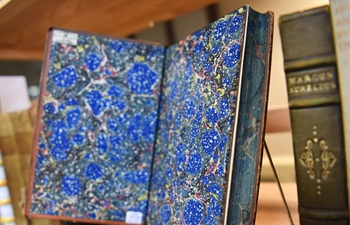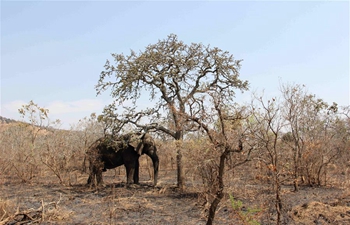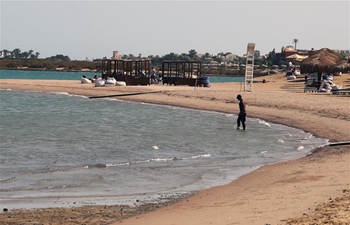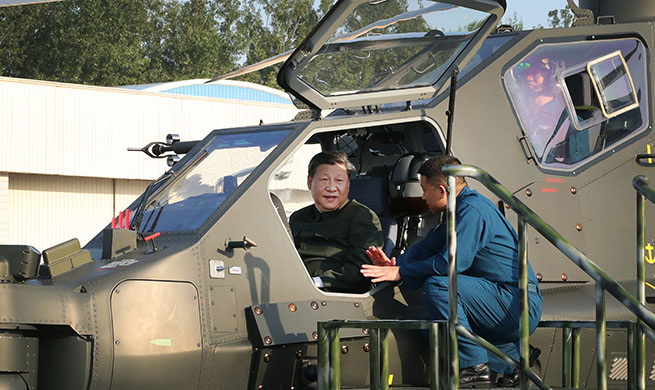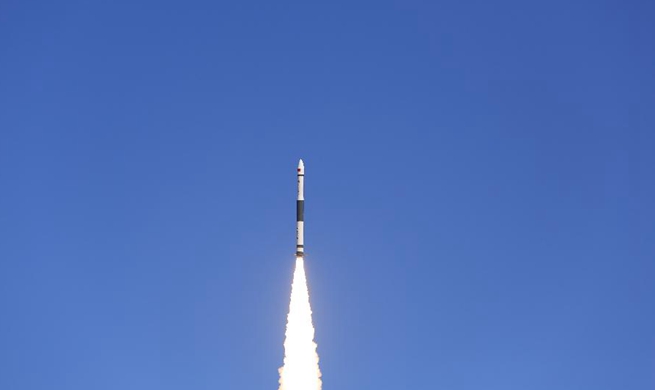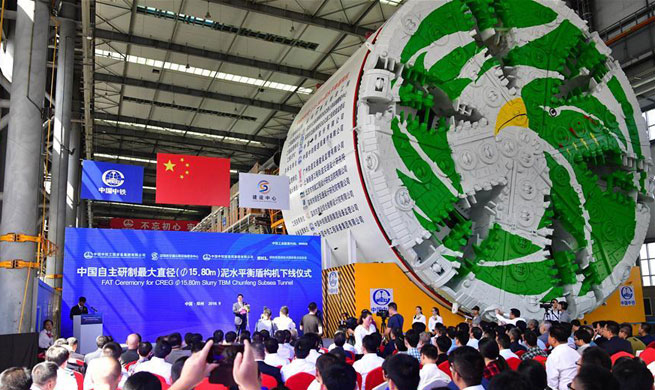ISTANBUL, Sept. 29 (Xinhua) -- The three-day trip to Germany by Turkish President Recep Tayyip Erdogan may serve to normalize bilateral ties while partly helping Ankara better cope with its economic problems, analysts said.
The visit may help the Turkish economy recover, but still the economy will be no bed of roses, said Can Baydarol, an analyst on Turkish-EU ties.
Erdogan met with German President Frank-Walter Steinmeier and Chancellor Angela Merkel on Friday in a visit aimed at mending troubled ties between the two countries.
Notably, the visit comes at a time when the Turkish government is in huge need of fresh foreign funds to run the debt-stricken economy.
In the view of Baydarol, deputy head of the Ankara-based European Union and Global Research Association, Erdogan's visit has already partly paid off as far as the economy is concerned.
The rise in the value of the Turkish lira is an indication of the financial market's expectations that the normalization of ties with Germany may also pave the way for Turkey to mend ties with the European Union, he said.
The lira, which was at around 6.3 against the U.S. dollar at the beginning of the past week, strengthened to around 6 in the days before Erdogan's arrival in Berlin.
The Turkish currency, under pressure because of insufficient inflow of foreign funds as well as a sizable foreign debt due this year, has lost around 50 percent in value against the U.S. dollar since April.
Erdogan called on leading German business people and bankers to invest in Turkey in a meeting on Friday evening, saying the Turkish economy is on solid ground.
"Whether Turkey will attract (additional) German investment depends on whether Erdogan will be able to convince the German business people," said Faruk Sen, head of the Istanbul-based Turkish European Foundation for Education and Scientific Research.
But mending ties with Berlin could also help Ankara get funds from the EU, remarked Sen, who lived for long years in Germany as a researcher.
Germany, where nearly 3.5 million Turkish citizens live, is Turkey's biggest trading partner. Around 7,000 German businesses are active in Turkey.
Berlin seems to be more interested in boosting economic cooperation with Ankara rather than providing direct financial aid to buttress the Turkish economy.
A day before meeting with Erdogan, Merkel said the two countries needed to have economic cooperation, ruling out the possibility of direct financial assistance by Berlin.
Turkey needs foreign loans as much as 240 billion dollars in the next 12 months to pay debts and keep the economy running.
In 2018, Turkey is expected to run a current account deficit of around 55 billion dollars.
Unlike Baydarol, Sen does not see the rise in lira's value as a result of Erdogan's visit only, though he underlined that the visit represents more than a simple normalization of ties between Ankara and Berlin.
"A new economic, political and military relationship may begin to take shape following this visit," Sen said, referring to the fact that Erdogan is the first Turkish president to have officially visited Germany since 2011.
In a joint press conference with Erdogan, Merkel announced that German, Turkish, Russian and French leaders will come together in October to discuss the situation in Syria.
The most important message of the meeting between the two leaders is Merkel's remarks about the summit on Syria, observed Baydarol.
In addition, both Ankara and Berlin disagree on the U.S. sanctions on Iran, noted Sen.
For its part, Ankara hopes for the visit to open a new page in bilateral ties.
For Baydarol, however, the visit should be seen as no more than a promising first step in the growing rapprochement between the two states.
Both analysts feel that the deterioration in ties between the United States and the EU has pushed Berlin to develop stronger ties with Ankara, including in the area of security.
"This new situation (against Washington) should positively change German investors' attitude toward Turkey," said Baydarol.
Erdogan said at the joint press conference with Merkel on Friday that they agreed to "revive cooperation mechanisms that have fallen out of use for some time" between the two countries.
Merkel stressed, for her part, that both countries had strategic interest in developing good ties and that Germany favors an economically stable Turkey with a steady growth.
Relations between Ankara and Berlin soured particularly after a coup attempt jolted Turkey in July 2016. Since then, Berlin has often criticized the Turkish government for drifting away from the rule of law, while Ankara has accused Berlin of acting as a safe haven for terrorists and behaving like Nazi Germany.
Yet Turkey is a vitally important partner for Germany as it has agreed to help prevent Syrian refugees from travelling to Europe under a deal with the EU, though Ankara itself hosts around 3.5 million Syrians on its soil.
Peter Altmaier, German minister for economic affairs and energy, is scheduled to lead a large group of German business people to visit Turkey in October.





